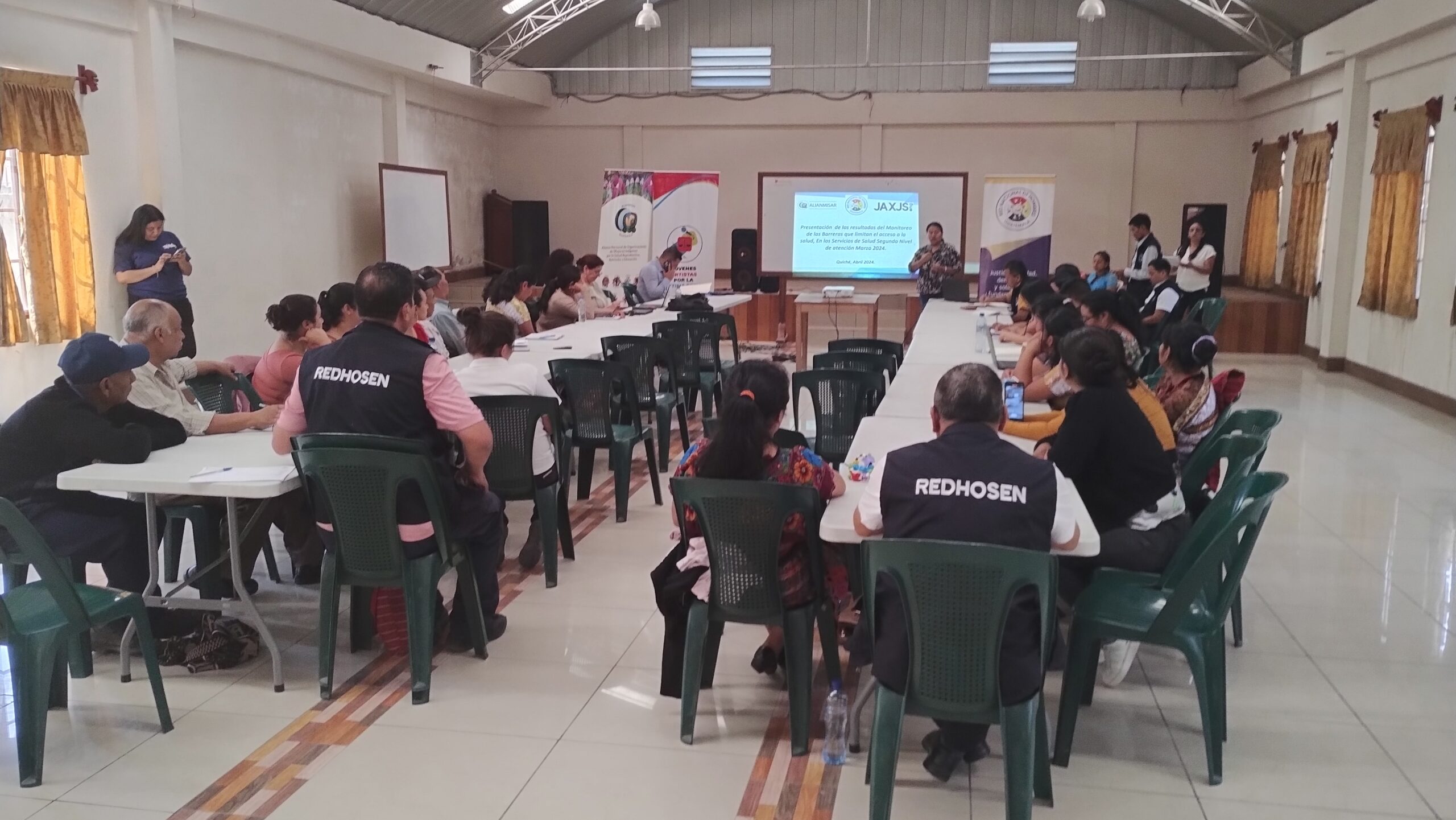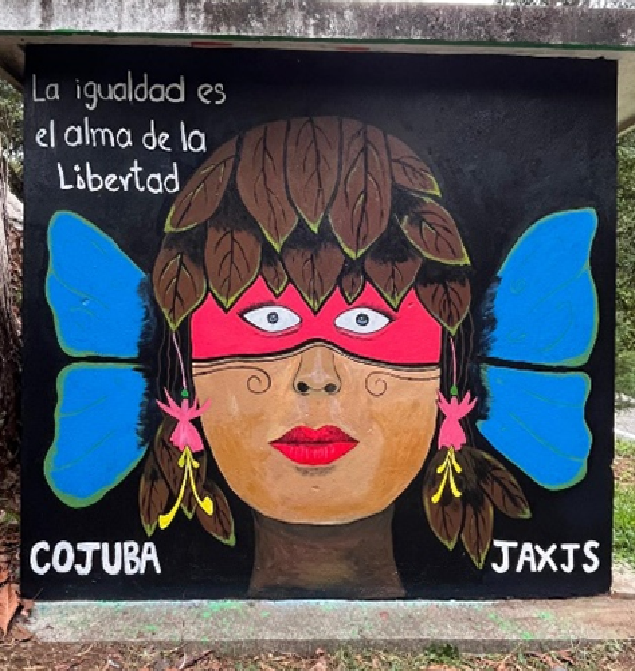Addressing Health Inequities in Guatemala by Strengthening Local Ownership
August 30, 2024

Background
Guatemala has long struggled with ethnic and gender health inequities, undermining developmentoutcomes and the quality, effectiveness, and accessibility of a wide range of services. Women and girls are much more likely than boys to experience violence and suffer from chronic and infectious diseases, and they have particularly poor access to health care and welfare and development programs. Access to reproductive health services and commodities is also characterized by inequities, particularly for ethnic groups. Maternal mortality is 2.2 times higher within the indigenous population than in the non-indigenous population, and chronic malnutrition in indigenous children under 5 years of age is 1.8 times higher than in their non-indigenous counterparts.
To address these inequities in line with USAID’s localization approach, the USAID-funded New Partners Initiative (NPI) EXPAND project strengthened three local nongovernmental organizations (NGOs) with both organizational and technical capacity building. The NGOs worked on a range of topics such as family planning (FP), maternal and child health (MCH), nutrition, primary health care (PHC), gender, and ‘new masculinities’ which are efforts to unlearn traditional gender roles that are harmful to society and create more equitable gender balances. NPI EXPAND supported these NGOs to navigate USAID requirements on organizational topics such as human resources, financial management, internal controls. This capacity strengthening has been successful, with each of the NGOs now direct recipients of international funding rather than being reliant on intermediary funders.
Local Organizing to Address Persistent Inequities
The three NGOs NPI EXPAND supported were formed well before the project began in December 2023 as informal networks of local leaders. The National Alliance of Indigenous Women’s Organizations for Reproductive Health, Nutrition and Education (ALIANMISAR) is comprised of r local leaders, social advocates, traditional midwives. The Network of Men of Guatemala (REDHOSEN) includes private sector leaders, including athletes and evangelical pastors. The Network of Young Artists for Social Justice (JAxJS) brings together local organizations of singers, university students, painters, and other young artists. These informal networks work locally on a wide range of topics, from reproductive health to nutrition to gender inequities to culturally sensitive health services for indigenous communities.
Before NPI EXPAND and with the support of previous USAID health policy projects, these informal networks achieved successes, including two maternal health laws; allocation of public funds for FP; national legislation about minimum age at marriage; policies on culturally relevant health services and new masculinities; and operational policies for monitoring government projects to track policy implementation and public investment. However, these successes all came via donor support through intermediary projects, challenging their organization’s long-term sustainability.
Towards Local Ownership
With the support of USAID projects, in 2022 all three networks were formally registered with the government of Guatemala as official NGOs. From there, NPI EXPAND set out to help the newly registered NGOs strengthen their organizational capacity, with an end goal of being direct recipients of donor funds. NPI EXPAND worked closely with the three NGOs to assess their capacity and plan their capacity strengthening and future activities. A flurry of organizational capacity strengthening followed, included establishing financial and human resource systems; hiring Program and Finance Managers; and developing manuals for financial managements, internal controls, and human resources. NPI EXPAND facilitated training on these new organizationalelements as well as on compliance with USAID’s funding management requirements for each NGO’s staff and board.
NPI EXPAND also deepened the NGOs’ technical knowledge on specific health, policy, and advocacy topics. The project facilitated a series of webinars on FP, MCH, nutrition and food safety policies and strategies with experts from other USAID projects. NPI EXPAND also provided training in advocacy, political dialogue, monitoring and evaluation, and processes for accountability, reproductive health, and prevention of malnutrition.
As Armando Barreno, President of the Board of Directors of REDHOSEN put it:
“The close accompaniment provided by NPI EXPAND strengthened the capacities of REDHOSEN, because we received timely guidance in the technical, administrative, and financial areas that allowed us to execute the project correctly and efficiently. We appreciate all the support provided to make this experience a great learning opportunity and lessons for our growth as an organization and on a personal level on behalf of each of the members of the Board of Directors and staff.”
Successfully Bolstering New Local Capacity
NPI EXPAND’s support is showing results even in a short time as these new NGOs are set to be direct recipients of donor funds. The project facilitated conversations between the NGOs and the Foundation for Food and Nutrition of Central America and Panama (FANCAP), which is interested in the process the NGOs carried out to monitor health service provision and quality. With USAID funds, FANCAP is now directly granting funds to the three NGOs to continue their work auditing health services in more than 20 municipalities in western Guatemala. ALIANMISAR will focus on the quality of care for indigenous women, REDHOSEN on the application of a manual for the participation of men in health services with a gender focus, and JAxJS on the quality of care for family planning services for adolescents. In addition to the new partnership with FANCAP, JAxJSalso secured new funding from the Global Fund for Children, UNFPA, and the Office of the United Nations High Commissioner for Human Rights.
Kimberly Barrios, the Vice President of the Board of Directors of JAxJS, noted that NPI EXPAND’s capacity strengthening support was crucial to the organization’s development and ability to secure donor funding:
“NPI EXPAND helped JAxJS strengthen its administrative and financial capacities, which has allowed the NGO’s work to be consolidated. It has been a total success for young people to create and carry out activities for more young people, strengthening the idea of youth work and broadening the bases of the NGO. Working with USAID makes it easier to apply for funds with other donors, because having previous experience with USAID allows us to create positive and reliable records for other donors.”
NPI EXPAND’s support to nascent NGOs in Guatemala shows the potential for capacity building tosupport local organizations in both their organizational capacity as well as their technical knowledge with the ultimate goal of ensuring long-term sustainability for local organizations.
